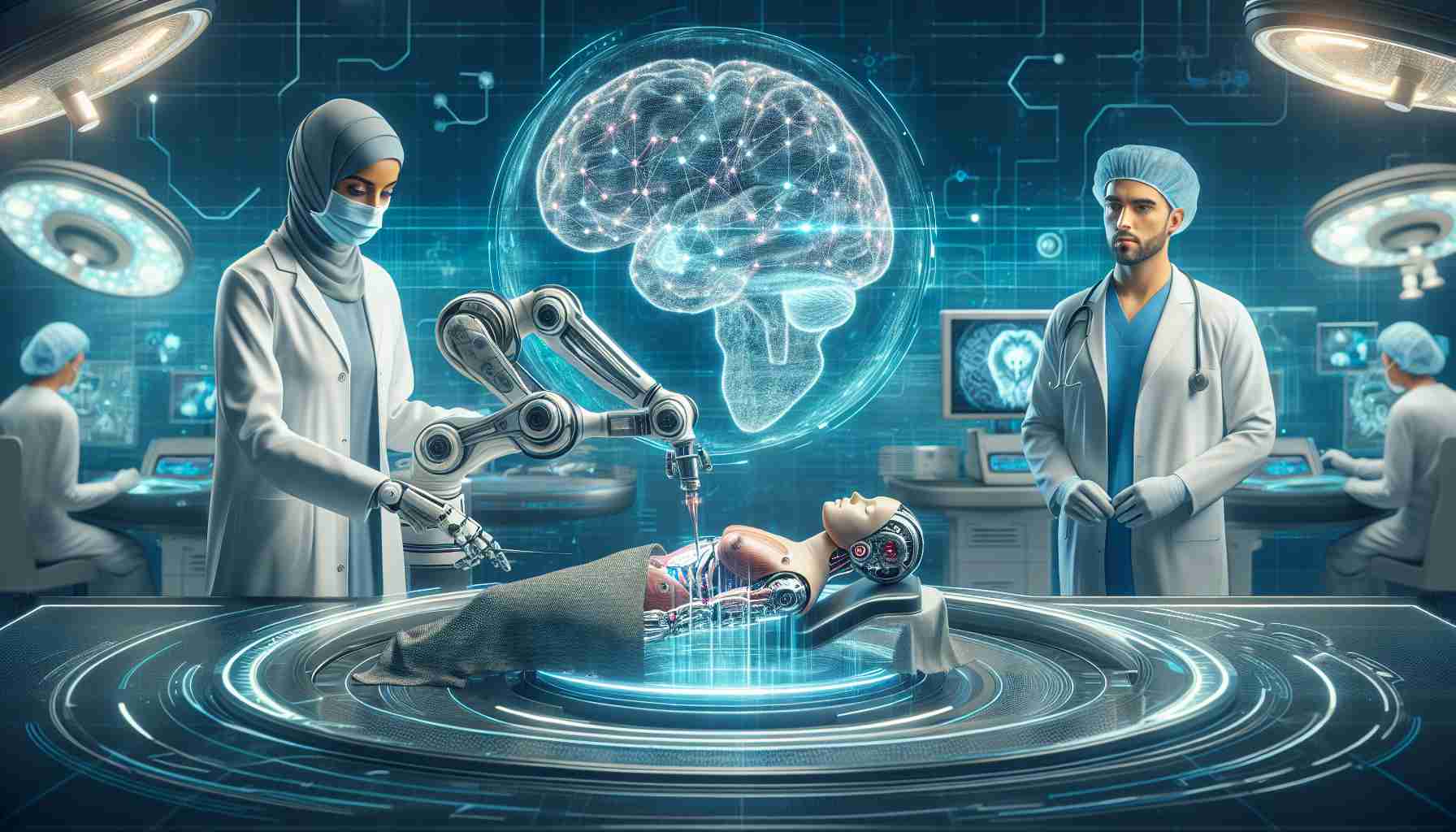Innovations in Healthcare Diagnosis and Treatment
In a groundbreaking shift, medical practitioners are increasingly integrating AI technology into their daily practices to enhance diagnostic accuracy and efficiency. By leveraging AI-powered systems, doctors can now swiftly analyze patient symptoms and history to provide precise diagnoses and personalized treatment plans. This transformative approach not only streamlines healthcare delivery but also ensures safer and more effective patient care.
Empowering Patients Through AI
AI applications extend beyond clinical settings to empower patients with convenient healthcare solutions. From AI-assisted appointment scheduling to personalized treatment recommendations, individuals can now access comprehensive medical services at their fingertips. This patient-centric approach minimizes waiting times, optimizes treatment procedures, and ultimately improves the overall healthcare experience.
Challenges and Legal Implications
Despite the promising benefits of AI in healthcare, concerns about legal risks and ethical considerations persist. Issues such as algorithm bias, data privacy, and transparency pose challenges that demand careful attention. Maintaining a balance between AI assistance and human judgement is crucial to uphold patient rights, ensure accountability, and mitigate potential risks associated with automated healthcare decision-making.
Paving the Way for Ethical AI Integration
To navigate the evolving landscape of AI-driven healthcare, regulatory frameworks and ethical guidelines must be established for responsible AI utilization. Emphasizing transparency, data protection, and algorithm accountability is essential to foster trust in AI technologies. By promoting a collaborative approach between AI systems and healthcare professionals, the industry can harness the full potential of AI while safeguarding patient welfare and privacy.
Ensuring Ethical Standards in Online Medical Platforms
As AI integration expands in online medical platforms, ensuring compliance with ethical standards is paramount. From prescription practices to data security protocols, healthcare providers must prioritize patient safety and confidentiality. Striking a balance between AI automation and human oversight is key to upholding professional standards and protecting patient interests in the rapidly evolving digital healthcare landscape.
Conclusion
The transformative impact of AI in the healthcare sector heralds a new era of precision medicine and patient-centered care. By navigating legal complexities, ethical dilemmas, and regulatory challenges thoughtfully, stakeholders can harness the full potential of AI technology while upholding ethical standards and ensuring patient well-being in the digital age of healthcare.
Revolutionizing Medical Care with AI Technology: Unveiling New Realities
In the realm of healthcare, the integration of AI technology continues to revolutionize medical care, offering unprecedented opportunities for diagnostic accuracy and personalized treatment. While recent advancements have highlighted the benefits of AI in enhancing healthcare delivery, a deeper exploration reveals a myriad of essential questions and considerations that shape the future landscape of AI-driven medicine.
Key Questions and Answers:
1. How does AI technology contribute to medical breakthroughs?
AI technology enables faster analysis of vast amounts of patient data, leading to more accurate diagnoses and tailored treatment plans. By identifying patterns and trends that may elude human observation, AI enhances clinical decision-making and improves patient outcomes.
2. What are the primary challenges associated with AI in healthcare?
One key challenge is the potential for algorithm bias, where AI systems may inadvertently perpetuate existing disparities in healthcare delivery. Addressing issues of bias, transparency, and data privacy is crucial to ensuring equitable and ethical use of AI technology in medical care.
Advantages and Disadvantages:
Advantages:
– Enhanced diagnostic accuracy and treatment personalization
– Streamlined healthcare delivery processes
– Empowerment of patients through convenient access to medical services
– Improved patient outcomes and overall healthcare experience
Disadvantages:
– Concerns regarding algorithm bias and fairness
– Legal complexities and ethical dilemmas
– Potential risks to data privacy and patient confidentiality
Related Links:
World Health Organization – Explore global health initiatives and resources.
National Institutes of Health – Access cutting-edge research and information on medical advancements.
As the healthcare industry continues to embrace AI technology, it is essential to navigate the evolving landscape with a critical lens on ethical considerations, regulatory frameworks, and patient-centered care. By proactively addressing challenges and controversies surrounding AI integration in medicine, stakeholders can maximize the benefits of AI while safeguarding patient welfare and promoting responsible healthcare practices in the digital age.


















